Delphi Method: A Methodological Forecasting Tool
The Delphi Method is an established tool for systematically collecting expert opinions, primarily used to assess future developments. Through a structured and multi-stage survey process, well-founded forecasts can be made even in complex and uncertain issues.
Delphi Method: At a Glace
- Delphi Procedure for Future Forecasting: The Delphi survey is a multi-stage procedure that systematically collects anonymous expert knowledge to make well-founded statements about future developments.
- Standard vs. Broadband Delphi Method: While the standard procedure involves isolated responses from experts, the broadband Delphi method allows for exchange—at the risk of a consensus overshadowing important individual opinions.
- Real-time Delphi (RTD): In Real-time Delphi, participants receive immediate feedback on the group’s opinion and can reconsider and adjust their assessments in multiple loops.
- Structured Approach: The Delphi survey follows a clear process—from expert selection to iterative question rounds and result analysis—minimizing typical group dynamics.
- Diverse Applications: The Delphi method is especially suitable for trend research, strategic planning, and guideline development, such as in companies, project management, or the medical field.
What is the Delphi Method?
The Delphi Method is a systematic instrument for gathering and compiling the opinions and forecasts of different experts. Based on a multi-stage qualitative survey procedure, it aims to develop predictions for the future. The method assumes that experts can make competent assessments regarding developments in their specific fields. Therefore, it is crucial to consult the right experts for the success of the Delphi method.
The Delphi technique is named after the Oracle of Delphi, which, according to Greek legend, could predict the future for rulers in ancient times. Similarly, the Delphi survey aims to make predictions about future developments based on expert opinions.
Standard Delphi Method
In the standard procedure, experts are surveyed separately and cannot discuss among themselves. Discussions are avoided to exclude group dynamics. However, there is a risk that knowledge gaps from individual experts could lead to distorted results.
Broadband Delphi Method
In the broadband method, experts exchange views. During the survey, group discussions often take place, allowing individual knowledge gaps to be compensated. However, there is a risk of forming a uniform consensus that overlooks important aspects of the issue being studied.
Real-time Delphi (RTD)
The most commonly used form of Delphi in research is Real-time Delphi (RTD). Results are returned in real-time, meaning they are live shared with participants in the form of the group’s opinion. This allows participants to reassess their own evaluations if they differ from the group’s opinion.
A key feature of RTD is that participants log in multiple times during the survey period to re-answer the survey, in so-called loops. Additionally, participants can engage in discussions using a comment function.
Advantages of the Delphi Method
The Delphi Method offers numerous advantages, especially in comparison to traditional survey methods or group decision-making processes. The central advantages include:
- Anonymity of Participants: The anonymous nature of the survey eliminates hierarchies and dominant personalities, preventing participants from being influenced by group pressure.
- Iterative Process: The multi-stage survey allows experts to reconsider and refine their assessments based on group feedback. As a result, the quality of the statements improves over successive rounds.
- Variety of Perspectives: Since participants respond independently, a wide range of views and assessments are gathered, resulting in a comprehensive overall picture.
- Consensus Orientation: The goal is to achieve convergence of opinions through structured exchanges, which is particularly useful for strategic decisions.
- Flexibility in Execution: The Delphi Method can be conducted both traditionally in writing or digitally (e.g., via Real-time Delphi) depending on the objectives and available resources.
- Ideal for Future-related Questions: The method is especially useful when dealing with forecasts, long-term developments, or complex issues where no clear knowledge base exists.
Delphi Method Process
The Delphi Method is a systematic approach to reaching consensus among experts on a specific topic or question.
Here is the structured process of this method:
- Expert Selection: The first step is to identify and assemble a group of experts. These experts should possess substantial knowledge and experience in the relevant field. The selection should aim to ensure a balanced representation of opinions and expertise.
- Questionnaire Creation: An independent moderator develops the questionnaire, which can include both open and closed questions to explore different aspects of the central issue. The goal is to capture a comprehensive picture of expert opinions.
- First Survey Round: The experts complete the questionnaires within a specified time frame. This phase is intended to gather a wide range of perspectives and assessments.
- Feedback and Iteration: After the initial evaluation, experts receive a summary of the group results to reconsider in a second round. Anonymity of the responses is maintained to encourage independent and unbiased assessments.
- Continuing the Iterative Process: Survey rounds are repeated, with experts accessing group results, until consensus is reached or no new information is added.
- Result Analysis and Application: Finally, the data is analyzed to identify consensus or the predominant views. The results serve as a basis for strategic decisions or further analysis.
This structured approach of the Delphi survey enables a thorough and systematic analysis of expert opinions, fostering informed consensus building.
Real-time Delphi Process
“Real-time Delphi” is a method used to gather and analyze expert opinions on a specific topic to predict future trends or developments.
The Real-time Delphi process can look like this:
Expert Identification
Experts in the relevant field are identified. These experts can come from various disciplines and should have relevant knowledge and experience.
Question Generation
Questions are formulated to gather opinions and assessments from experts about certain aspects of the issue at hand. These questions may be open or closed and may focus on current trends, future developments, or potential challenges.
Online Delphi Process
Online Delphi Process: Selected experts answer the questions online or through a specialized Delphi tool (e.g., Foresight Strategy Cockpit). Responses are anonymized and summarized to provide feedback to the experts and identify consensus or divergence of opinions on certain topics.
Iterative Process
The Delphi process may be iterative, meaning experts can reconsider and update their opinions after each round of feedback. This allows continuous refinement of predictions and convergence toward consensus.
Analysis and Interpretation
The collected data is analyzed to identify trends, patterns, or key issues. The results are interpreted to gain insights into future developments or potential scenarios.
Reporting and Use
The results of the Real-time Delphi are summarized in a report or presentation and can be used for strategic decisions, planning, or further research.
Application of the Delphi Method in Companies
In large companies, various methods are used to evaluate current trends or to plan and calculate future events effectively. The Delphi Method helps make important decisions and develop effective strategies within a company. Expert opinions serve to gain insights into future developments.
In companies, the Delphi technique is particularly applied in project management, strategy development, market assessment, and marketing. A key advantage in these areas is the low risk of misjudgment. Additionally, decision support for executives is relevant and relieves them in day-to-day operations.
Frequently asked questions and answers
The Delphi Method is a multi-stage survey procedure where experts anonymously provide their assessments on a particular issue. After each round, they receive a summary of the group’s opinion and can reconsider their responses. The goal is to reach a well-founded consensus on future developments through this iterative process.
The Delphi Method is especially popular in companies, particularly in project management. Differences in opinion among members of internal project teams often lead to the failure of an entire development process. The Delphi Method can help achieve agreement in processes by involving experts.
In addition, the Delphi Method is also used in forecasting tasks. For example, when developing a new product, experts can identify and assess relevant trends.
Apart from its application in companies, the Delphi Method is also essential in the medical field, where it is used for guideline development. A key advantage is that multiple treating doctors (experts) can be involved.
A Delphi Panel is another term for the multi-stage and systematic survey procedure with feedback. It is a forecasting method used to predict future events and identify trends and developments. Experts in their respective fields are consulted for their advice and opinions.
Real-Time Delphi (RTD) is a survey method that collects both quantitative and qualitative data. Experts are asked to evaluate probability, plausibility, or other criteria. Results are returned in real-time, meaning they are live shared with the participants in the form of the group’s opinion. This allows participants to check their own evaluations if they differ from the group’s.
A key feature is that participants log in multiple times during the survey period and answer the survey again. Additionally, participants can engage in discussions using a comment function.
Yes, the Foresight Strategy Cockpit (FSC) can be used for conducting Real-Time Delphi (RTD). The user has the option to choose from various question types to obtain both qualitative and quantitative results.
Students and staff from universities and higher education institutions have the opportunity to use FSC free of charge to independently create, conduct, and evaluate an RTD.
Sources:
- Gill Ringland, The role of scenarios in strategic foresight, Technological Forecasting and Social Change, Volume 77, Issue 9, 2010, Pages 1493-1498, ISSN 0040-1625, https://doi.org/10.1016/j.techfore.2010.06.010.
- Nayak, A. (2009). “Chapter 3: Strategic Foresight”. In Handbook of Research on Strategy and Foresight. Cheltenham, UK: Edward Elgar Publishing. Retrieved Mar 24, 2025, from https://doi.org/10.4337/9781848447271.00009



